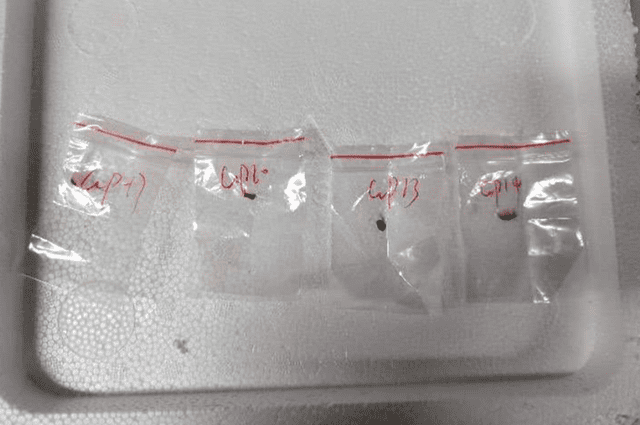FBI investigates biological pathogen smuggling by Chinese couple at Detroit Airport
A Chinese couple faces federal charges after smuggling a dangerous biological pathogen into the U.S. to use in research at the University of Michigan

According to a press release on June 3 by the Eastern Michigan's Attorney's Office, Yunqing Jian, 33, and Zunyong Liu, 34; were charged with:
- conspiracy
- smuggling goods into the United States
- false statements
- visa fraud
The FBI first arrested the couple after they discovered they were trying to smuggle into America a fungus called Fusarium graminearum, which is used as an extremely dangerous agroterrorism weapon.
Fusarium Graminearum found at Detroit Airport
In July 2024, Liu was at the Detroit Metropolitan Airport trying to enter the country when border officers found the Fusarium graminearum in his backpack. According to the complaint, reddish plant material was discovered among 4 plastic bags inside a wad of tissues.
Yunqing Jian, a postdoctoral fellow at the University of Michigan, and her boyfriend, Zunyong Liu, had researched the pathogen while they were in China; but while Liu had originally said he had no idea about what the plastic bags contained, nor how they ended up in his backpack, he later confessed.

A Chinese couple of researchers was found trying to smuggle Fusarium Graminearum. Photo: U.S. District Court
Jian was not any better. She initially denied knowing anything about Liu's plans to smuggle the pathogen for research, previous WeChat messages from 2022 show her intention of smuggling seeds into the U.S.

ALSO SEE: Marjorie Taylor Greene faces backlash for voting on Trump’s Tax Bill without reading AI provision
How Chinese researchers endangered National Security
According to the FBI, in scientific literature the fungus is classified as a “potential agroterrorism weapon,” costing billions of dollars every year. This pathogen is the common cause of “head blight,” a disease which affects:
- wheat
- barley
- maize
- rice
The consequences of this fungus are commonly:
- vomiting
- liver damage
- reproductive defects in humans and livestock












